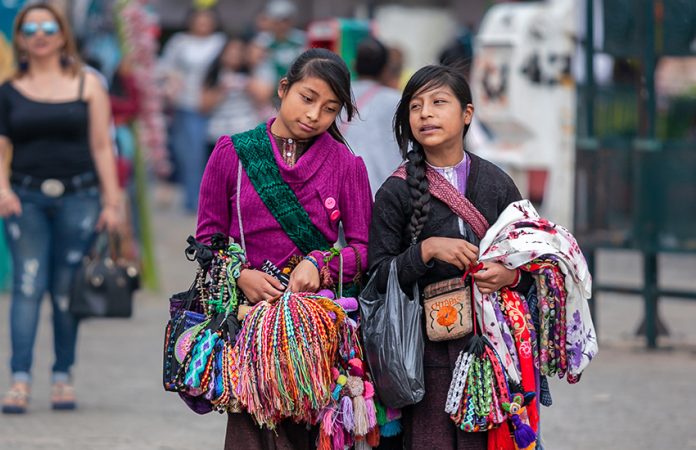My sister has come to visit!
It’s been a year and half since we’ve seen each other — a year and a half since I’ve seen anyone related to me other than my daughter, in fact. Needless to say, to me it’s a Very Big Deal.
She flew into Veracruz (about an hour and a half from Xalapa), so I decided to make a mini, safe-as-possible vacation of it. I booked a nice, extra-sanitized hotel in downtown Veracruz for a couple of nights, packed my hand gel, extra masks and swimsuit and headed there with my daughter to pick my sister up and spend a couple of days relaxing.
Since I mostly live and have lived like a local for the past almost 20 years, it’s been a long time since I’ve done anything “touristy.” Being a tourist makes me squirm.
It’s not because I feel embarrassed about exploring a new place, looking at souvenirs or frequenting silly museums (I’m looking at you, Ripley’s Believe It or Not.) No, it’s because at least if you’re exploring a city — and especially one reeling from the double-whammy of a health and economic crisis that has left people devastated on both fronts — the pressure to actively participate at all times in the tourist industry’s recovery is on.
And while tourism is up, those who earned a living from it pre-pandemic are far from recovered.
As those of you who read my column frequently know, I do a lot of thinking about the ethics of my role as a foreigner living in Mexico. I try to do this even when it doesn’t leave me — or those who share more characteristics than not with me — in the most flattering light.
As uncomfortable as it is to simultaneously recognize how my privilege both supports and contributes to a way of life I don’t feel 100% comfortable with, I do my best not to keep myself stuck in a constant game of defense.
And though I genuinely love people — talking to them, hearing their stories, being around them — I’m naturally reserved at my core and can get easily overwhelmed by any intense onslaught of attention-wanting humanity. On this trip, those who depend on tourist dollars to survive were particularly persistent about wanting attention and business from me.
Who can blame them? It’s been a rough year, and many are desperate to recover lost ground. And let’s face it: even before the pandemic, the typical strategy for vendors without a storefront or a kiosk has been to walk around areas frequented by tourists, trying to sell things to you, even if you’re mid-bite or mid-conversation.
This makes the entitled, prissy part of me mad: will you please stop interrupting me every five minutes and let me freaking finish my meal/conversation/text? If I shop, I want to do so because I’ve decided to stop and have a look around, not because someone’s waving bracelets in my face and really wants me to stop whatever I’m doing to look them over and choose one to buy right then. The same goes for bus and boat tours, and meals at restaurants.
And then, of course, I immediately feel like a jerk. Walking up to people and trying to get them to buy something from you must be, after all, enough of a winning strategy enough of the time, and who am I to scowl at them for trying to make a living?
My right to shop or not shop when I want to hardly seems as important as their right to try their best to make enough money to eat that day. How to handle these simultaneous feelings of irritation and guilt?
Shortly before traveling, I translated an article (not yet published) about a small beachside town that the government had worked hard to turn into a paradise for tourists. I’ve been thinking about it ever since, and I especially thought about it as I enjoyed some of the more luxurious activities that Veracruz has to offer.
There were all the normal complaints, of course: quickly rising prices in the area, which ensure that the non-wealthy citizens who already lived there would not have access to all of those new fun things available, and that businesses making up the tourism infrastructure would buy up all of the best land plots in town where community centers used to stand.
In the wake of the pandemic, there was an extra sting as well: children (still) out of school and with fewer places to play, all while their community systematically turned into a gigantic pay-to-play amusement park made up of 100%-open businesses for rich vacationers to come and live out their own fantasies.
As you might imagine, wages for locals remain flat, tied to the state’s minimum wage rather than the local cost of living.
Veracruz is hardly a beach resort, and most of the tourists that arrive there are from other parts of Mexico. But the divide between those of us treating it as a playground made just for us and those who are just trying to make ends meet in the increasingly expensive city they live in is obvious and uncomfortable (for me, anyway).
Might it be like one’s parents having a second child that the older one must witness getting showered with love and sweets while sitting in their regular corner with a simple plate of rice and peas?
I want the sweets, but I want my older sibling to get the sweets too. We both turn and frown at the parents, who never seem to be around when we want an explanation, or some justice. So, we take on the uncomfortable task of trying to work it out between ourselves.
It’s not always pretty.
Sarah DeVries is a writer and translator based in Xalapa, Veracruz. She can be reached through her website, sdevrieswritingandtranslating.com and her Patreon page.
